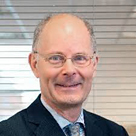| |
BPC Welcomes Lords' Call... for a Stronger BPC
The British Polling Council (BPC) has welcomed a report by the House of Lords, which calls for the UK industry to 'get its house in order' following three years of what it says are inaccurate political polls - and recommends expanding the role of the BPC.
 In 2016, a BPC / MRS inquiry found that opinion pollsters in the lead-up to the 2015 UK General election systematically over-represented Labour supporters and under-represented Conservative supporters in their samples; with the inquiry declaring the 2015 polls 'some of the most inaccurate' since election polling first began in the UK in 1945'. Two more polling 'misreads' followed - the 2016 'Brexit' vote to leave the EU and the US Presidential election - but a statistical analysis of poll accuracy over several decades published later by Kantar suggested this had been partly a function of very close calls, and found that pollsters had predicted the correct outcome of every major national election held last year. In 2016, a BPC / MRS inquiry found that opinion pollsters in the lead-up to the 2015 UK General election systematically over-represented Labour supporters and under-represented Conservative supporters in their samples; with the inquiry declaring the 2015 polls 'some of the most inaccurate' since election polling first began in the UK in 1945'. Two more polling 'misreads' followed - the 2016 'Brexit' vote to leave the EU and the US Presidential election - but a statistical analysis of poll accuracy over several decades published later by Kantar suggested this had been partly a function of very close calls, and found that pollsters had predicted the correct outcome of every major national election held last year.
Nevertheless, the House of Lords Select Committee on Political Polling and Digital Media was asked to examine the 'effects of political polling and digital media on politics' and found there had been a 'widespread loss of confidence in polling since 2015. The committee also expressed 'concerns about the extent to which inaccurate polls might be shaping the 'narrative' during election campaigns, and therefore how they might be affecting the democratic process'.
Lord Lipsey, Chairman of the committee, said the polling industry 'needs to get its house in order', claiming that if it doesn't, the case for banning polling in the run-up to elections will become stronger. However, the committee is not convinced of the case for introducing a ban on the undertaking and publication of voting intention polls in the run-up to elections and rejects the statutory regulation of polls. In so doing, the BPC acknowledges that this means the polling industry itself has a responsibility to promote best practice in the conduct and reporting of polls.
More broadly, the committee recommends that the BPC should adopt a wider remit and fulfil a larger role - to have a greater 'standard-setting and oversight function'. At present, BPC is run on a voluntary basis with limited resources and it will now consider how best to resource its activities in light of the committee's report. In addition, the committee recommended media regulators should be given more power to deal with polling misreporting.
Professor Sir John Curtice (pictured), President of the BPC, said: 'Today's report is a welcome contribution to a considered, informed discussion of the conduct and reporting of opinion polls in Britain. The council welcomes the fact that the committee recognised the weight of evidence put before it that a ban on the publication of polls would neither be desirable nor effective. At the same time, the council accepts that the polling industry has a duty to promote high standards in the conduct and reporting of polls and will now consider how it, in collaboration with other bodies, can enhance the considerable efforts that it already makes to achieve that objective.'
Web site: www.britishpollingcouncil.org and a full copy of the report can be read at: goo.gl/HJr3C1 .

|
